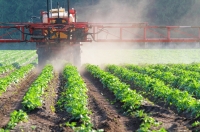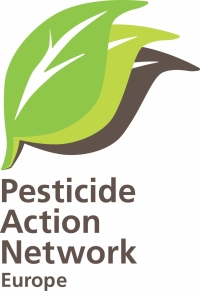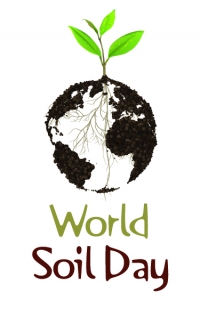Press releases
Members of the Environment Committee (ENVI) adopted yesterday an own initiative report on the implementation of the EU Directive on the Sustainable Use of Pesticides. While the report does contain some interesting recommendations, it falls short in one essential way: defining what Integrated Pest Management really is and providing concrete proposals on ways forward!
Europe must urgently improve its pesticide authorisation system to ensure protection from harm caused by pesticides is the message sent by the European Parliament today, who adopted the PEST Committee report calling for independence, objectivity, transparency and better use of science in the whole procedure. This is a milestone in the long-needed pesticide risk assessment reform in Europe, highlights PAN Europe.
A new White Paper, coordinated by Pesticide Action Network (PAN) Europe and produced by a group of 24 experts from the field of pesticides, risk assessment, human and environmental health identifies the many shortfalls in the safety assessment of pesticides in Europe that lead to dangerous substances being used in open spaces.
A new White Paper, coordinated by Pesticide Action Network (PAN) Europe and produced by a group of 24 experts from the field of pesticides, risk assessment, human and environmental health identifies the many shortfalls in the safety assessment of pesticides in Europe that lead to dangerous substances being used in open spaces. The analysis also proposes concrete solutions on how to improve the pesticide risk assessment in Europe in line with the mandatory requirements of EU law.
PAN Europe sends out a public response on today's vote (11/12/2018) at the plenary of the European Parliament in Strasbourg on the transparency proposal under the General Food Law .
Members of the European Parliament highlighted today the need to improve the European Pesticide Authorisation system. The effectiveness of Regulation (EC) 1107/2009 to protect human, animal and environmental health from pesticides requires changes in the whole pesticide approval procedure: from the industry’s application to get a pesticide active substance authorised, to the sale and use of the product containing the substance in EU Member States.
EU Commission President Juncker’s Science Advisors system recruited experts to help evaluating pesticide authorisation that were part of anti-regulation pressure groups
The health of our soils, this exceptionally high source of biodiversity, is threatened by human activities more than ever and the use of pesticides destroys soil life and depletes nutrient content. On the World Soil Day, Pesticide Action Network Europe sends out a clear message: “by protecting our soils we protect life on earth” and calls EU policy-makers to enforce sustainable agricultural practices in Member States to protect our ‘source of life’. The future of EU agriculture is here at stake.
Today is the 34th anniversary of the Bhopal disaster when a gas tank exploded in a Union Carbide pesticide factory in India, killing thousands of people. To date, half a million people have suffered from health consequences linked to that disaster.
A scientific publication (1) released today in the Journal of Environmental Health finds that an industry-funded study had drawn biased and unscientific conclusion on the neurodevelopmental toxicity of Chlorpyrifos. The authors of this critique highlight that based on the results obtained from the experiments, the industry should have reported neurodevelopmental toxicity. This was not the case.




